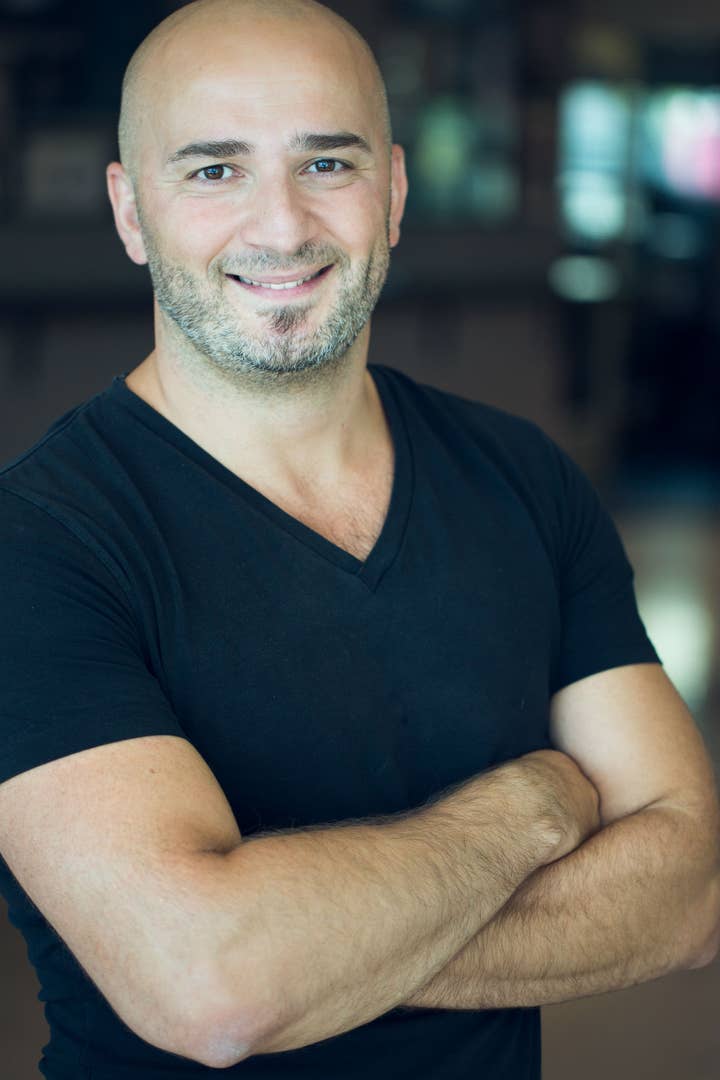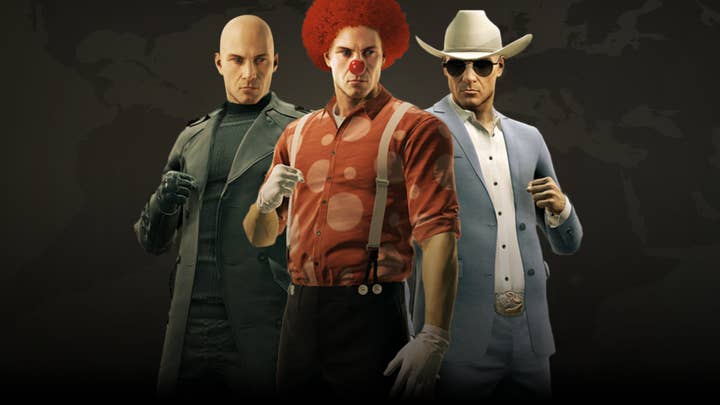More Hitman, more control: IO Interactive on its newfound independence
CEO Hakan Abrak talks about the studio's plans for the first time since its split from Square Enix
Last year, IO Interactive reinvented Hitman for the digital age, and in doing so created one of the boldest games of 2016. Within a few months of naming it my favourite game of the year, however, I was all but certain that I would soon be writing the Danish studio's obituary.
At first the outlook was grim. Square Enix wanted to drop IO, eight years after becoming its parent through the acquisition of Eidos. The Japanese publisher was actively seeking a buyer, but it darkly warned that "there can be no guarantees that the negotiations will be concluded successfully."
Job losses soon followed, and it became clear that the preferred buyer would be one interested in a deal for both the studio and the Hitman IP. Weeks passed with no further updates, and the fear that Square Enix would be unable to find a buyer started to look like an uncomfortable reality.
"We believe, deep down in our core, that we need to feel, breathe and act independently"
Then, at the end of June, six weeks after the ordeal first began, Io-Interactive announced that not only would it survive the transition, it would regain its independence through a management buyout, and retain control of its most iconic IP. What had looked suspiciously like an imminent disaster has turned into a best-case scenario.
"We have really been in awe regarding interest from publishers and investors alike," says IO Interactive CEO Hakan Abrak, speaking to GamesIndustry.biz about the studio's options when Square Enix decided it was time for a break. "We went through with the management buyout because we believe, deep down in our core, that we need to feel, breathe and act independently.
"We need to be free to embrace and live directly with our fans and community, and free to make fundamental decisions for the studio and our games, within our own halls."

While IO Interactive ultimately decided to pursue an MBO rather than become part of another company, Abrak is clear that choosing independence doesn't mean that it will not work with publishers and investors. If anything, he says, "we believe that being independent makes us far more attractive to work with, when it comes to the motivation to succeed with our games."
Beyond independence, the company's other principal goal was to ensure not only that it could keep on working with the Hitman IP, but that it could develop and refine the digital-first, episodic structure it laid out with the 2016 game. We discussed the thinking behind that innovative approach in detail with Io-Interactive in November last year, and Abrak admits that, having learned so much during that first "season" of Hitman, the studio was unwilling to give up before it attempted a second.
"Look, we feel like we're onto a good thing with our latest Hitman game," he says. "We've changed how we work, and as a studio we've never felt more confident and more in control of knowing what we're doing. I think our Game of the Year Edition is a testament to that. We learned so much during the first season of this game, and by the end we felt like a well-oiled machine."
"We learned so much during the first season, and by the end we felt like a well-oiled machine"
IO launched the Hitman GOTY Edition last week, a package that collects the content released during its first season, along with new story content, items, weapons, disguises and a raft of visual and mechanical improvements. More importantly, the package will be self-published by IO Interactive, a first in the studio's near 20-year history.
"Yes, it is [self-published], and just for the record, it feels pretty good to say that," Abrak says. "There were obviously a few things that we had to pick up as self-publisher. However, we created a digital, ever-expanding platform with Hitman, which meant that we released more than 50 updates last year alone. Our 'submission fitness' is strong."
Square Enix will not receive a cut of the sales from Hitman's GOTY Edition, and that applies to any future content IO might release for the franchise. In simple terms, a dollar spent on the new package is a dollar towards, as Abrak put it, "the next Hitman game and beyond."
"I can't emphasise enough how much we appreciate the support," he adds. "We will return the love through the games we make."

At this point, then, any lingering fears that there will be no more Hitman can be roundly dismissed. Abrak and his team are fully engaged with where to take the series next, and he is refreshingly open about the areas in which the first season could have been improved.
"We're the first to admit we got some things right and some things wrong," he continues. "Changing our business model before launch caused confusion, and we had some tech issues at launch. While the episodic nature of the main story campaign received major praise from the press and many gamers, it wasn't necessarily everyone's cup of tea. What did really work wonders for the game was the live model.
"That journey has not only changed Hitman, it has changed our thinking also, when it comes to creating new universes in the future"
"Frequent release of content, challenges and live events really exceeded all expectations. With every content update we saw more and more players joining. All of that content took a herculean effort from the dev team, and it paid off... We learned a lot that will make the experience even better for the next game in the Hitman universe."
At the start of 2017, Hitman had two million players. At the time of writing it has accrued more than seven million players. "That number is rising daily," Abrak adds. "And these aren't dormant players; these are highly engaged players in Hitman."
That audience provides IO Interactive with a solid platform on which to build, and Abrak confirms that it is already "in negotiations and discussions with potential partners." And any partnership deal will be about more than just financial support, he says - making this new conception of Hitman demanded a cultural shift within the studio, so making the next game the best it can be will recognise and meet the demands of operating a live game.
The online, digital-first world is very much where IO intends to stay, too. The studio "lost Kane & Lynch and Mini Ninjas in the 'divorce'" from Square Enix, Abrak says, but it emerged with the rights to Freedom Fighters and Hitman. Right now, the focus is solely on the latter, but Abrak acknowledged that creating universes and characters is "in our blood."
"The AAA digital era is where we all are right now and it made perfect sense for Hitman Season One, " he says. "Being able to create that experience and then continue to add to it has been immensely rewarding for IO Interactive, and we hope for our players too. That journey has not only changed Hitman, it has changed our thinking also, when it comes to creating new universes in the future.
"This has been a genuine watershed moment for us. Just like our games, it can be challenging at times, but now we're in control of what we do next and that's quite satisfying. Being independent means we don't have to do things the way we've done them in the past. We can decide what's right for IO Interactive, for Hitman and for our players.
"We can be more open with what we say and what we do. In other words: expect less corporate-speak, and more heart."
